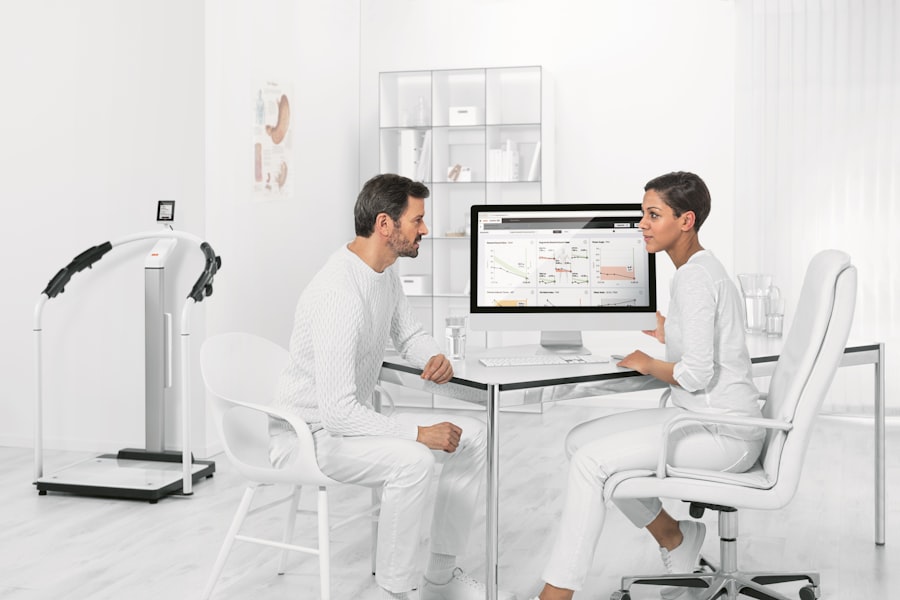Clinical research management software (CRMS) has emerged as a pivotal tool in the realm of clinical trials and research studies. As the complexity of clinical research continues to grow, driven by the increasing number of trials, regulatory requirements, and the need for data integrity, the demand for sophisticated management solutions has surged. CRMS is designed to facilitate the planning, execution, and monitoring of clinical trials, ensuring that they are conducted efficiently and in compliance with regulatory standards.
This software encompasses a wide range of functionalities, from participant recruitment and data collection to regulatory compliance and reporting. The evolution of clinical research has been marked by a shift towards more data-driven methodologies. Traditional methods of managing clinical trials often involved cumbersome paperwork and manual processes that were prone to errors and inefficiencies.
In contrast, CRMS offers a centralized platform that integrates various aspects of clinical research, allowing for real-time data access and collaboration among stakeholders. This transition not only enhances the quality of research but also accelerates the timeline for bringing new therapies to market, ultimately benefiting patients and healthcare providers alike.
Key Takeaways
- Clinical Research Management Software (CRMS) enhances efficiency and accuracy in clinical trials.
- Key features include data management, patient tracking, and regulatory compliance tools.
- CRMS streamlines workflows by automating tasks and improving communication among teams.
- Integration with existing systems ensures seamless data flow and reduces duplication.
- Selecting the right CRMS involves evaluating functionality, scalability, and user support.
Benefits of Using Clinical Research Management Software
The advantages of utilizing clinical research management software are manifold, significantly impacting both the operational efficiency of research organizations and the quality of the data collected. One of the primary benefits is the enhancement of data accuracy and integrity. By automating data entry and standardizing processes, CRMS minimizes the risk of human error, which can lead to costly delays and regulatory issues.
Furthermore, real-time data monitoring allows researchers to identify discrepancies or anomalies promptly, ensuring that any issues are addressed before they escalate. Another significant benefit is the improvement in collaboration among research teams. CRMS facilitates seamless communication between various stakeholders, including researchers, sponsors, and regulatory bodies.
This interconnectedness fosters a more cohesive approach to trial management, where all parties can access up-to-date information and contribute to decision-making processes. Enhanced collaboration not only streamlines workflows but also promotes transparency, which is crucial in maintaining trust with participants and regulatory authorities.
Features and Functionality of Clinical Research Management Software

Clinical research management software is equipped with a diverse array of features designed to address the multifaceted needs of clinical trials. One of the core functionalities is project management, which allows users to plan, execute, and monitor trial activities effectively. This includes tools for scheduling tasks, tracking milestones, and managing budgets, all within a single platform.
Additionally, CRMS often includes modules for site management, enabling researchers to oversee multiple trial sites efficiently and ensure compliance with protocol requirements. Data collection and management are also central features of CRMS. Many systems offer electronic data capture (EDC) capabilities that streamline the process of gathering participant information and trial results.
This not only accelerates data collection but also enhances the quality of the data through built-in validation checks. Furthermore, CRMS typically includes reporting tools that facilitate the generation of comprehensive reports for stakeholders, ensuring that all parties are informed about trial progress and outcomes.
How Clinical Research Management Software Streamlines Processes
| Process | Traditional Method | With Clinical Research Management Software (CRMS) | Impact |
|---|---|---|---|
| Study Planning | Manual scheduling and resource allocation | Automated scheduling with resource optimization | Reduces planning time by up to 40% |
| Patient Recruitment | Paper-based tracking and outreach | Centralized database with automated matching and reminders | Increases recruitment rate by 30% |
| Data Collection | Manual data entry and paper forms | Electronic data capture with real-time validation | Decreases data entry errors by 50% |
| Regulatory Compliance | Manual documentation and audits | Automated audit trails and compliance tracking | Improves compliance adherence by 25% |
| Reporting | Time-consuming manual report generation | Automated report generation and dashboards | Reduces reporting time by 60% |
| Budget Management | Manual tracking and invoicing | Integrated budget tracking and automated invoicing | Enhances budget accuracy by 35% |
The implementation of clinical research management software fundamentally transforms how clinical trials are conducted by streamlining various processes. One key area where CRMS excels is in participant recruitment and retention. Traditional recruitment methods can be time-consuming and inefficient; however, CRMS provides tools for identifying potential participants based on specific criteria, thereby expediting the recruitment process.
Additionally, automated communication features can help maintain engagement with participants throughout the trial, reducing dropout rates and ensuring that studies remain adequately powered. Moreover, CRMS enhances monitoring and compliance through automated tracking of regulatory requirements and trial protocols. By providing alerts for upcoming deadlines or necessary documentation submissions, CRMS helps ensure that researchers remain compliant with ethical standards and regulatory guidelines.
This proactive approach not only mitigates risks associated with non-compliance but also fosters a culture of accountability within research teams.
Integration of Clinical Research Management Software with Existing Systems
The ability to integrate clinical research management software with existing systems is a critical consideration for organizations looking to enhance their research capabilities. Many research institutions already utilize various software solutions for data analysis, electronic health records (EHR), or laboratory information management systems (LIMS). A robust CRMS should offer compatibility with these systems to facilitate seamless data exchange and minimize disruptions to established workflows.
Integration can take several forms, including application programming interfaces (APIs) that allow different software systems to communicate effectively. For instance, integrating CRMS with EHR systems can enable researchers to access patient data directly from their clinical databases, streamlining participant selection and monitoring processes. Additionally, this integration can enhance data security by ensuring that sensitive patient information is managed in compliance with regulations such as HIPAA.
Considerations for Choosing the Right Clinical Research Management Software

Selecting the appropriate clinical research management software requires careful consideration of several factors tailored to an organization’s specific needs. One crucial aspect is scalability; as research organizations grow or take on more complex trials, their software must be able to accommodate increased demands without compromising performance. Organizations should evaluate whether the software can handle larger datasets and more users while maintaining efficiency.
Another important consideration is user-friendliness. The effectiveness of CRMS is heavily reliant on user adoption; therefore, it is essential that the software interface is intuitive and accessible to all team members, regardless of their technical expertise. Training resources and customer support are also vital components to consider when evaluating potential software solutions.
Organizations should seek vendors that offer comprehensive training programs and responsive support services to ensure a smooth transition and ongoing assistance.
Case Studies of Successful Implementation of Clinical Research Management Software
Numerous organizations have successfully implemented clinical research management software, yielding significant improvements in their trial processes. For example, a prominent pharmaceutical company faced challenges in managing multiple concurrent trials across various locations. By adopting a comprehensive CRMS, they were able to centralize their project management efforts, leading to a 30% reduction in trial timelines due to improved coordination among sites.
The software’s real-time data access allowed for quicker decision-making and enhanced collaboration between teams. Another case study involves a mid-sized clinical research organization that struggled with participant retention in their trials. After implementing CRMS with integrated communication tools, they were able to automate follow-up reminders and provide participants with timely updates about their involvement in the study.
This proactive engagement strategy resulted in a 25% increase in participant retention rates over subsequent trials, demonstrating how effective use of technology can directly impact trial outcomes.
Future Trends in Clinical Research Management Software
As technology continues to evolve, so too will clinical research management software. One emerging trend is the incorporation of artificial intelligence (AI) and machine learning algorithms into CRMS platforms. These technologies have the potential to enhance data analysis capabilities by identifying patterns and predicting outcomes based on historical data.
For instance, AI could assist in optimizing participant recruitment strategies by analyzing demographic trends and previous trial results. Another trend is the increasing emphasis on patient-centric approaches within clinical research. Future CRMS solutions are likely to incorporate features that prioritize patient engagement and experience throughout the trial process.
This may include mobile applications that allow participants to track their progress or provide feedback directly through their smartphones. By focusing on patient needs and preferences, researchers can foster greater trust and collaboration with participants, ultimately leading to more successful trial outcomes. In conclusion, clinical research management software represents a transformative force in the field of clinical trials.
By streamlining processes, enhancing collaboration, and improving data integrity, CRMS empowers researchers to conduct more efficient and effective studies. As technology continues to advance, the future holds exciting possibilities for further innovation in this critical area of healthcare research.




